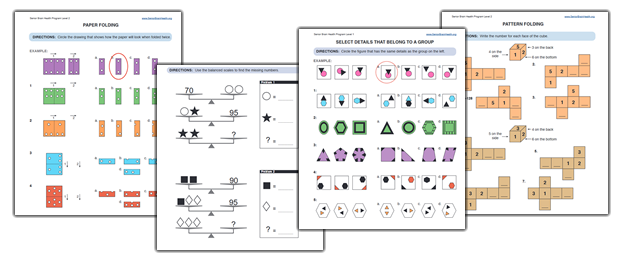Maintaining cognitive health is crucial for individuals dealing with memory-related conditions such as dementia, Alzheimer’s, and stroke recovery. Incorporating brain maintenance activities into daily routines can significantly impact memory care, providing both immediate and long-term benefits. By engaging in regular mental exercises, individuals can support cognitive function, enhance memory, and improve overall quality of life.
The Importance of Daily Brain Maintenance
-
Promoting Neuroplasticity
- Neuroplasticity refers to the brain’s ability to adapt and reorganize itself by forming new neural connections. Engaging in regular mental exercises helps stimulate neuroplasticity, which can be particularly beneficial for those experiencing memory decline. Research indicates that mental stimulation can enhance cognitive function and potentially delay the progression of neurodegenerative conditions. Activities such as puzzles, word games, and memory challenges are excellent for promoting neuroplasticity.
-
Enhancing Memory Retention
- Daily brain maintenance activities play a crucial role in improving memory retention. Cognitive exercises such as memorization tasks, pattern recognition, and problem-solving can strengthen neural pathways associated with memory. Studies have shown that individuals who engage in regular mental exercises experience improved memory performance and slower cognitive decline compared to those who do not participate in such activities.
-
Supporting Cognitive Rehabilitation
- For individuals recovering from strokes or brain injuries, incorporating brain maintenance activities into their daily routine can aid in cognitive rehabilitation. Structured exercises that focus on memory, attention, and problem-solving can help individuals regain lost cognitive functions and improve their ability to perform daily tasks. Rehabilitation programs that include mental exercises have been shown to enhance recovery outcomes and quality of life.
-
Reducing Cognitive Decline
- Consistent engagement in brain maintenance activities can help reduce cognitive decline associated with aging and neurodegenerative conditions. Research suggests that individuals who actively participate in cognitive exercises experience slower rates of decline and better preservation of cognitive abilities. By integrating these activities into daily routines, individuals can take a proactive approach to managing their cognitive health and mitigating the effects of memory loss.
Effective Brain Maintenance Activities
-
Memory Games
- Memory games, such as matching pairs and recall exercises, are designed to challenge and enhance memory function. These activities can be tailored to an individual’s cognitive abilities and gradually increased in complexity to provide continuous stimulation.
-
Problem-Solving Puzzles
- Engaging in problem-solving puzzles, such as crosswords and Sudoku, helps strengthen cognitive skills related to reasoning and critical thinking. These puzzles can be a fun and effective way to keep the brain active and improve cognitive performance.
-
Language and Word Activities
- Activities that involve language and word processing, such as word searches and vocabulary exercises, can support language skills and cognitive function. These activities help individuals maintain their language abilities and keep their minds sharp.
-
Interactive Group Activities
- Participating in group activities, such as discussion groups and collaborative games, provides social interaction and cognitive stimulation. Group activities encourage communication, collaboration, and engagement, which can be particularly beneficial for individuals with memory conditions.
Utilizing Our Brain Maintenance Books
Our Senior Brain Puzzles Program is designed to support cognitive health through a variety of engaging activities. With options for both individual and group use, our books offer a diverse range of puzzles and exercises tailored to different cognitive abilities. By incorporating these activities into daily routines, individuals can benefit from:
- Varied Puzzles: Designed to challenge memory, reasoning, and problem-solving skills.
- Group Activities: Ideal for collaborative settings, fostering social interaction and cognitive stimulation.
- Flexible Formats: Available in print and eBook versions, making it easy to integrate into daily routines.
Incorporating brain maintenance activities into daily routines is a proactive approach to managing memory care and supporting cognitive health. By engaging in regular mental exercises, individuals can enhance their memory, support cognitive function, and improve their overall quality of life.




